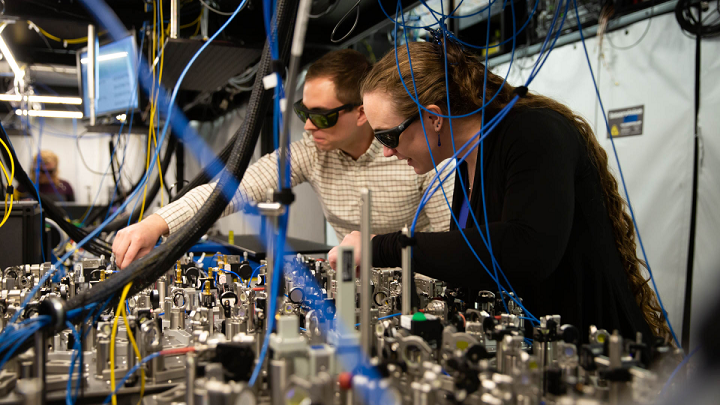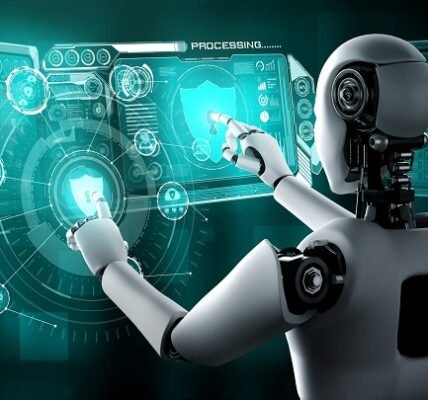Quantum computing breakthroughs—a term that has been making waves in the world of science and technology—promise to revolutionize how we prepare data. But what precisely is quantum computing, and why is everybody so energized around its potential? In this web journal, we’ll investigate the breakthroughs in quantum computing, why it’s imperative, and what these progressions may mean for the future of technology.
What are quantum computing breakthroughs?
Before we plunge into the most recent breakthroughs, let’s break down what quantum computing is. Conventional computers, like the one you’re likely utilizing right now, utilize bits to prepare data. These bits can either be a 0 or a 1, like flipping a switch on or off. Quantum computers, in any case, utilize quantum bits, or qubits, which can be both 0 and 1 at the same time, much appreciated by a marvel called superposition.
This capacity to be in different states at once makes quantum computers unimaginably effective. They can handle a gigantic sum of data at the same time, which is something classical computers battle with. Quantum computers too utilize another interesting but capable property called trap, where qubits that are snared can right away influence each other, no matter how distantly separated they are.
Why Are Quantum Computing Breakthroughs Important?
The significance of quantum computing comes down to its capacity to illuminate complex issues that are outlandish or would take an illogically long time for classical computers to handle. This may change businesses such as healthcare, cryptography, fake insights, and indeed climate science.
- For example, quantum computers could:
- Help find unused medications by rapidly analyzing complex natural molecules.
- Break encryption codes that are right now utilized to secure touchy data.
- Model and anticipate climate designs with exceptional accuracy.
- Optimize supply chains for businesses, driving to more productive operations.
Now that we know what quantum computing is and why it’s so energizing, let’s look at a few of the greatest breakthroughs in this field.
Major Quantum Computing Breakthroughs
1. Quantum Amazingness Achieved
In 2019, Google made features when its quantum computer, Sycamore, accomplished what is known as quantum matchless quality. This implies that Google’s quantum computer performed a calculation that would take a classical supercomputer thousands of a long time to total, in fair 200 seconds. This was a tremendous turning point since it appeared, for the first time, that quantum computers might outflank classical computers on certain tasks.
However, not everybody concurred with Google’s claim. A few analysts contended that the issue Google’s machine unraveled wasn’t especially valuable in the genuine world. But indeed, with this feedback, Google’s accomplishment stamped a major step forward in the journey for effective quantum machines.
2. IBM’s Quantum Computing Cloud
While Google was active working on quantum matchless quality, IBM took a diverse approach. They’ve centered on making quantum computing available to as numerous individuals as conceivable. In 2016, IBM propelled the IBM Quantum Encounter, a cloud-based stage that permits anybody, from analysts to inquisitive understudies, to test with quantum computers.
This breakthrough is imperative since it has made a difference demystified quantum computing and opened the entryway for more individuals to contribute to its improvement. By making quantum computing apparatuses accessible online, IBM has cultivated a worldwide community of quantum designers who can work on tackling complex issues together.
3. Quantum Blunder Correction
One of the greatest challenges in quantum computing is something called quantum blunder adjustment. Since qubits are so touchy. They can effortlessly lose their quantum state due to little unsettling influences like temperature changes or electromagnetic obstructions. This makes quantum computers inclined to errors.
Recently, analysts have made noteworthy advance in redressing these mistakes. Researchers have created unused strategies to distinguish and settle blunders without disturbing the qubits’ state. Whereas quantum computers are still distant from being totally error-free, these progressions in mistake rectification are a vital step toward building dependable, large-scale quantum machines.
Applications of Quantum computing breakthroughs
Now that we’ve looked at a few of the major breakthroughs, let’s investigate how these progressions can be connected in the genuine world.
1. Pharmaceutical and Medicate Discovery
One of the most promising applications of quantum computing is in the field of healthcare. Quantum computers seem to offer assistance researchers get it the behavior of complex particles, driving to the disclosure of modern drugs and medications. For occurrence, quantum computers may recreate how a sedate is interatomic with proteins in the human body. Which is something classical computers battle to do accurately.
Imagine being able to discover a remedy for illnesses like cancer or Alzheimer’s much faster than we can nowadays. Quantum computing may make that a reality.
2. Cryptography and Security
Many of the encryption strategies we utilize nowadays. Such as those that ensure our online management of an account and communication depend on the trouble of certain scientific issues. In any case, quantum computers may fathom these issues in a matter of seconds, possibly making current encryption strategies obsolete.
On the flip side, quantum computing too has the potential to make unused, much more grounded shapes of encryption. This would make it harder for programmers to get to delicate data, eventually leading to way better security.
3. Climate Modeling
Climate change is one of the greatest challenges confronting our planet. Precisely modeling climate frameworks requires a colossal sum of computational control, and classical computers are frequently not up to the errand. Quantum computers, with their capacity to handle complex calculations, seem to offer assistance researchers make more precise models of the Earth’s climate.
These moved-forward models may lead to superior forecasts of extraordinary climate occasions, making a difference governments and organizations arrange more viably for catastrophes like tropical storms, surges, and droughts.
Future Prospects: What’s Another for Quantum Computing?
While quantum computing has come a long way. We’re still in the early stages of its advancement. The next few a long time are likely to bring indeed more energizing breakthroughs as analysts work on scaling up quantum computers and making them more commonsense for ordinary use.
Some of the greatest challenges ahead include quantum computing breakthroughs
- Scaling up the number of qubits: Right presently, quantum computers have a restricted number of qubits. Which limits their control. Analysts are working on ways to increment the number of qubits whereas keeping up their stability.
- Improving quantum blunder adjustment: Whereas advance has been made, quantum computers are still inclined to blunders. Way better mistake redress methods will be fundamental for making quantum computers reliable.
- Creating down-to-earth applications: Whereas quantum computers have illustrated their potential, finding real-world applications that advantage businesses will be key to their broad adoption.
Conclusion
Quantum computing is no longer a cutting-edge concept—it’s a reality that’s as of now starting to reshape the world of innovation. With major breakthroughs like Google’s quantum matchless quality, IBM’s cloud-based quantum stage, and headways in blunder adjustment. We’re getting closer to opening up the full potential of quantum computers.
As quantum computing proceeds to advance. We can anticipate to see it change businesses extending from healthcare to back to climate science. Whereas there are still challenges to overcome, the future of quantum computing is inconceivably promising.
To learn more about the progressing advancements in quantum computing and how they might affect the world, you can check out assets from high-authority sources like the MIT Innovation Audit and Nature.
FAQs:
What is quantum computing?
Quantum computing is a sort of computing that employs quantum bits (qubits) to handle data. Not at all like classical bits, qubits can speak to both 0 and 1 at the same time. Permitting quantum computers to perform complex calculations more efficiently.
What is quantum matchless quality?
Quantum amazingness is the point at which a quantum computer can perform a calculation that would be outlandish or unreasonable for a classical computer to total inside a sensible time frame.
How does quantum computing offer assistance in medical revelation?
Quantum computers can mimic the behavior of complex particles, making it less demanding for researchers to find unused drugs and medicines by understanding how these particles connected with the human body.
Can quantum computers break encryption?
Yes, quantum computers have the potential to break current encryption strategies. Which depend on the trouble of understanding certain numerical issues. In any case, they can also make more grounded shapes of encryption for superior security.
What businesses will advantage from quantum computing?
Quantum computing may change businesses such as healthcare, cryptography, climate science, fake insights, and more by understanding complex issues that are as of now past the reach of classical computers.






